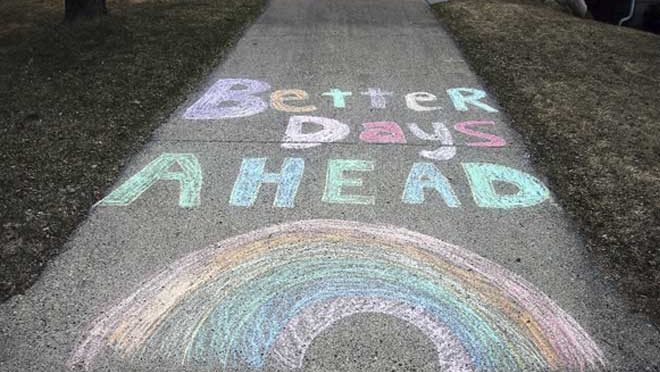Lopsided discourse on COVID-19 and mental health
Posted on : October 7, 2020Author : AGA Admin

Ðilip Wagh left for work at 2 PM in the afternoon, he waved a habitual goodbye to his wife, Mangal and daughter Roshni. The next he saw them was two day later, wrapped in white sheets at a local hospital. (People’s Archive of Rural India, 2020)
Dilip says, “We have no farmland, and our only income is from (daily wage) labour, which has dried up since the lockdown. We had rations, but there was no money at home. Over the past 15 days, I had received occasional work in the paddy fields, but it was hardly enough. She was extremely worried about our situation and probably thought there would be two less stomachs to feed. I had to borrow money to give them a respectful farewell.” (People’s Archive of Rural India, 2020)
Dilip Wagh’s neighbor, Deepak Bhoir said, “Everyone is dealing with the stress and anxiety arising from the uncertainty of work.” (People’s Archive of Rural India, 2020)
The global pandemic of COVID-19 has created a massive need for a shift in the discourse on mental health. As feelings of fear, worry, and stress are an involuntary reaction to perceived threatening situations, it is a given that people are facing the same at different intensities in this situation of a global pandemic and series of nationwide lockdowns. Added to the fear of contracting the virus, there are several other concerns which may also cause a long-term disruptions to people’s ongoing lives. These concerns include the fear of losing jobs as redundancies are soaring. According to the reports generated by The International Labor Organization (ILO) and the Asian Development Bank (ADB), about forty-one lakh youth in India have lost their jobs due to the COVID-19 pandemic, in which construction and farm sector workers account for a majority of these job losses (“41 lakh youth lose jobs,” 2020). Unemployment was already an issue even before the pandemic as a large population of the youth remain excluded from both education and work (“41 lakh youth lose jobs,” 2020). Losing jobs has various consequences for people, especially for the marginalized people. For many it could literally mean starving until these jobs are regenerated because a large section of the population is engaged in daily-wage labor that has rendered them jobless and penniless. According to a COVID-19 Livelihoods Survey, a report by Azim Premji University in Bengaluru contains data on over 5000 households across 10 states in India. The report states that 75 percent of all the households reported consuming less food than they did before the lockdown, and 35 percent of the households did not have the money to buy essentials for the next week (Kesar, Abraham, Lahoti, Nath, & Basole, 2020).
Additionally, the announcement of the nationwide lockdown rendered several migrant workers stranded. Now, when there is abundant research and information on the stressors amidst the pandemic and conversations on the mental state of the society, it is important to note that this discourse is exclusionary in nature. The mental health of the marginalized people which includes a majority of the country, remains absent and invisible in the dominant discourse flooding social media and news, which are also most accessed platforms in current times. However, the population that has access to these platforms is also exclusively the privileged and rich. Therefore, the current discourse on mental health is shaped and accessible to only a certain population of the country that excludes the marginalized sections of the society.
As COVID-19 cases increase incessantly, there seems no hope for the future, and this further worsens the socio-economic condition of the country as entire livelihoods of people have come undone, amid the escalating job crisis and insecurity (Nalapat, 2020). And this has unsurprisingly increased suicide incidences, with spikes in the cases reported across the country (Nalapat, 2020). COVID-19 has only brought the epidemic of suicides to the forefront, revealing that the stigma against mental health still thrives and the lack of national response strategy because there are only 1.93 mental health workers per 10000 people (as of 2016) in India (Nalapat, 2020). As Nalapat (2020) highlights, familial stress contributes primarily to the cause of suicides with a majority of daily wage workers (23.4% as of 2019) committing suicide as a result of the uncertainty and stress that follow from being a subject to social exclusion and a part of India’s huge informal economy. The global pandemic and series of lockdown have only exacerbated these problems unaddressed for years.
The stigma against mental health will truly be eradicated only when information dissemination and awareness on mental health is done at the root level, and mental health services are made accessible to the marginalized sections of the country. Currently, there is very little or nothing known about how the pandemic and lockdown have impacted their psychological health. And this does not only include an equal accessibility to mental health services, but also other medical facilities and financial aids which will help ameliorate their situation and accompanying stressors. Additionally, their stories should come from them, we should hear it from them rather than privileged people of the society speaking for them.
When working from home, temporary unemployment, home-schooling/online learning, lack of physical contact with other family members, friends, and colleagues are the reported concerns impacting the mental health, there are other concerns of people such as working while exposing themselves to the virus (duties of drivers, security guards, domestic helps, etc.), inaccessibility to education as government schools remain shut and cannot switch to online platforms due to the inaccessibility to devices and internet, fear of permanent unemployment and starvation, anxiety due to the uncertainty and improper knowledge about the disease (many people did not understand why the country went into a lockdown and what COVID-19 is due to improper and poor dissemination of information), and several other concerns that one cannot fathom unless reported by someone in that position because it is difficult to put oneself in someone’s shoes and understand their positionality when we come from a place of privilege.
Mansi Goyal (Intern, AGA)
References
41 lakh youth lose jobs in India due to COVID-19 pandemic: ILO-ADB Report. (2020, August 18). The Economic Times. https://economictimes.indiatimes.com/news/economy/indicators/41-lakh-youth-lose-jobs-in-india-due-to-covid-19-pandemic-ilo-adb-report/articleshow/77613218.cms
Kesar, S., Abraham, R., Lahoti, R., Nath, P., & Basole, A. (2020). Pandemic, informality, and vulnerability: Impact of COVID-19 on livelihoods in India (Working Paper No. 01). Retrieved Azim Premji University, Centre for Sustainable Employment website: https://cse.azimpremjiuniversity.edu.in/wp-content/uploads/2020/06/Kesar_et_al_Pandemic_Informality_Vulnerability.pdf
Nalapat, S. (2020, September 14). Amid COVID-19 outbreak, India’s suicide epidemic remains unaddressed – these graphs show how. Time Now Digital. https://www.timesnownews.com/india/article/amid-covid-19-outbreak-indias-suicide-epidemic-remains-unaddressed-these-graphs-show-how/652188
People’s Archive of Rural India. (2020). In Palghar: ‘two less stomachs to feed.’ https://ruralindiaonline.org/articles/in-palghar-two-less-stomachs-to-feed/





Leave a Reply